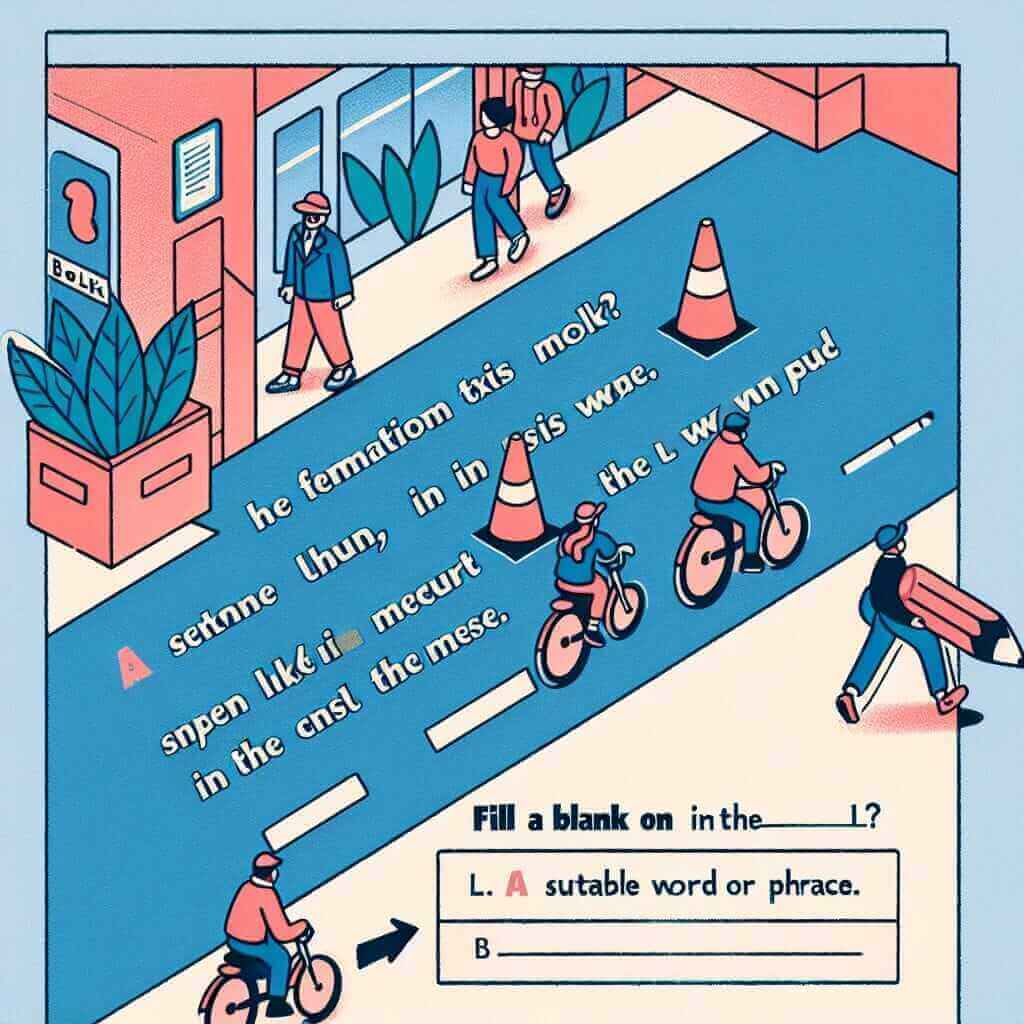Reading completion questions are a staple in the IELTS Reading test, designed to assess your ability to comprehend specific information within a passage. Whether you’re aiming for a Band 7 or higher, mastering this question type is crucial for success. This comprehensive guide will equip you with the strategies and knowledge needed to confidently tackle these questions and boost your overall reading score.
Understanding IELTS Reading Completion Questions
These questions typically require you to fill in gaps within a sentence or short paragraph, using words taken directly from the reading passage. The instructions will specify the maximum number of words allowed, such as “NO MORE THAN THREE WORDS AND/OR A NUMBER.” The questions often focus on identifying key details, definitions, explanations, or examples provided in the text.
Strategies for Success
Here are proven strategies to help you excel at IELTS reading completion questions:
1. Skim and Scan for Keywords
- Skim the passage quickly to grasp the main idea of each paragraph.
- Identify keywords in the completion question and scan the passage for synonyms, paraphrases, or related concepts. Pay attention to:
- Names, dates, places, and numbers
- Technical terms and their definitions
- Cause-and-effect relationships
- Examples and supporting evidence
Example:
Question: The discovery of __ in the region led to a surge in population.
Passage Excerpt: The unearthing of vast gold deposits in the latter part of the 19th century acted as a magnet, drawing thousands of prospectors to the area, hoping to strike it rich.
Analysis: Keywords like “discovery” and “population surge” lead us to the relevant information. “Unearthing,” “gold deposits,” and “drawing thousands” are synonyms and paraphrases, indicating that the answer is “gold deposits.”
2. Focus on Grammatical Accuracy
- Ensure the word or phrase you choose grammatically fits the blank space.
- Pay attention to singular/plural forms, verb tenses, articles (a, an, the), and prepositions.
Example:
Question: The author suggests that the __ of social media can be detrimental to mental health.
Passage Excerpt: This constant need for validation and comparison fostered by social media platforms can have a profoundly negative impact on one’s psychological well-being.
Analysis: Grammatically, the blank requires a noun or noun phrase. “Constant need for validation and comparison” fits the context but exceeds the word limit. The correct answer is “constant comparison,” maintaining grammatical accuracy within the word limit.
3. Don’t Rely on Background Knowledge
- Base your answers solely on the information presented in the passage, even if it contradicts your prior knowledge.
- The IELTS reading test assesses your comprehension of the given text, not your general knowledge.
4. Practice Active Reading
- Underline or highlight keywords, phrases, and sentences that directly answer the questions.
- Make brief notes in the margins to summarize key points and connections within the passage.
Common Mistakes to Avoid
- Misinterpreting keywords: Avoid jumping to conclusions based on familiar words in the questions. Carefully analyze the context and ensure a precise match with the passage.
- Ignoring grammatical cues: Overlooking articles, prepositions, or verb tenses can lead to incorrect answers, even if the chosen word seems to fit the meaning.
- Exceeding the word limit: Ensure your answers strictly adhere to the specified word limit. Often, concise paraphrasing or selecting the most relevant keyword is key.

IELTS Practice Question
Passage Excerpt:
The Great Barrier Reef, a UNESCO World Heritage site, is facing unprecedented threats from climate change. Rising ocean temperatures have led to coral bleaching events, causing significant damage to this delicate ecosystem. The Australian government, in collaboration with marine scientists, has implemented various conservation efforts, including coral transplantation and water quality improvement programs, to mitigate the impact of these threats and protect this natural wonder for future generations.
Question:
The Great Barrier Reef is under pressure due to __, which is causing coral bleaching.
Answer:
Rising ocean temperatures
How to Practice
- Regularly attempt practice tests from official IELTS resources like Cambridge IELTS books.
- Focus on identifying your weaknesses and strategize accordingly. For instance, if you struggle with specific question types like matching headings or multiple choice, dedicate more time to mastering those.
- Analyze your mistakes and understand the reasoning behind the correct answers.
Conclusion
Mastering IELTS reading completion questions demands a strategic approach, attention to detail, and consistent practice. By understanding the nuances of this question type, implementing the strategies outlined above, and dedicating sufficient time to practice, you can significantly enhance your reading comprehension skills and approach the IELTS Reading test with confidence. Remember, consistent effort and a focused approach are key to achieving your desired band score.